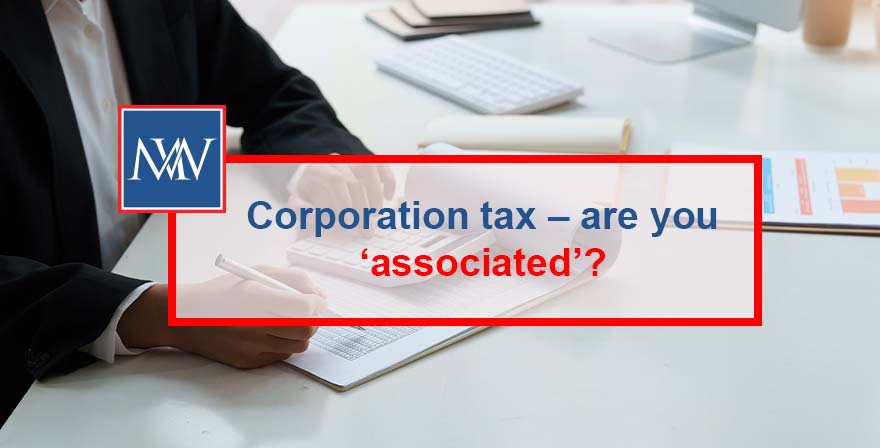
Corporation tax – are you ‘associated’?
The corporation tax rules are changing from 1 April 2023, and the amount that a company will pay will depend on the level of its profits, and also whether or not it has any associated companies.
Briefly, from 1 April 2023, companies with profits below the lower limit will pay corporation tax at the small profits rate of 19%, while companies whose profits exceed the upper limit will pay corporation tax at the main rate of 25%.
Where profits fall between the lower limit and the upper limit, corporation tax will be paid at the rate of 25%, as reduced by marginal relief.
For a company with no associated companies, for a 12-month accounting period the lower limit is £50,000 and the upper limit is £250,000. Where a company has associated companies, the limits are divided by the number of associated companies plus one. The limits are also proportionately reduced where the accounting period is less than 12 months.
The following table shows the limits for companies with zero to five associated companies:.
| Number of associated companies | Lower limit | Upper limit |
| 0 | £50,000 | £250,000 |
| 1 | £25,000 | £125,000 |
| 2 | £16,667 | £83,333 |
| 3 | £12,500 | £62,500 |
| 4 | £10,000 | £50,000 |
| 5 | £8,333 | £41,667 |
What is an associated company?
A new definition applies from 1 April 2023 to determine whether a company is an associated company for the purposes of the new corporation tax rules. For these purposes, a company is an associated company of another at any time when:
- one of the two has control of the other; or
- both are under the control of the same person.
However, a company is ignored in determining the number of associates that a company has if it has not carried on a trade or business at any time in the accounting period or if it was an associated company for only part of the accounting period and has not carried on a trade or any business during that part of the accounting period.
Meaning of ‘control’
The definition of ‘control’ is that which applies for the purposes of the close companies rules.
Under this definition, a person is treated as having control over a company if that person exercises, is able to exercise or is entitled to acquire direct or indirect control of the company’s affairs. In particular, a person is treated as having control of a company if the person possesses or is entitled to acquire:
- the greater part of the share capital or issued share capital of the company;
- the greater part of the voting power in the company;
- so much of the issued share capital of the company as would, on the assumption that the whole of the income of the company were distributed among participators, entitled that person to receive the greater amount so distributed; or
- such rights as would entitle that person, in the event of the winding up of the company or in any other circumstances, to receive the greater part of the assets of the company which would then be available for distribution among the participators.
If two or more persons together satisfy any of the above tests, then they are treated as having control of the company.
Rights that the person is entitled, or will be entitled, to acquire at a future date are taken into account. Certain rights and powers may also be attributed to a person in determining whether they have control, including those of companies that the person (alone or with an associate) control and those of their associates.
For more information, Book a Free Consultation
Need Accountancy Support?
For information on bespoke training, or if you have any other questions for Makesworth Accountant, please fill in your details below
















 151
151